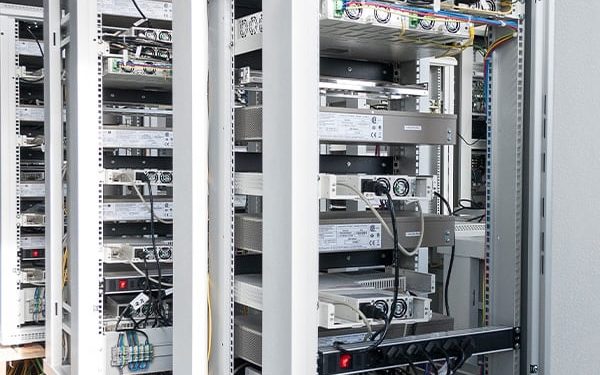How Heat Management Drives Technological Advancement
Behind every technological breakthrough lies the challenge of managing heat.As devices and systems become more powerful, their thermal demands grow exponentially. Without proper heat management, equipment can suffer reduced efficiency, frequent breakdowns, and even catastrophic failure.
This blog explores the intricate relationship between heat management and technology, examining how innovations like data centre cooling systems ensure the seamless operation of our increasingly digital world.
The Thermal Challenge: Why Technology Demands Cooling
Every technological system, from the smallest microchip to the largest data centre, generates heat during operation. As processors work harder and systems become more complex, so does managing heat become increasingly critical. Excessive temperatures can degrade performance, reduce efficiency, and cause permanent damage to sensitive components.
The challenge lies in dissipating heat effectively without disrupting operations. Without proper heat management, technology’s reliability—whether in smartphones or server farms—would be compromised. Efficient cooling systems help maintain optimal operating conditions.
The problem is that traditional cooling methods, such as air conditioning, can be insufficient for high-demand environments. This is why businesses are starting to adopt advanced solutions, like liquid cooling and modular refrigeration systems, to support optimal performance and sustainability in demanding environments.
Data Centres: The Heart of Digital Infrastructure
From powering cloud computing to managing financial transactions, data centres are the backbone of modern technology and integral to industries across the globe. However, with great computational power comes significant thermal output, making effective cooling essential for uninterrupted operation.
Heat buildup in data centres can lead to hardware failures, reduced performance, and increased energy costs. Advanced data centre cooling systems combat these challenges by regulating temperatures, preventing hotspots, and ensuring optimal conditions for servers. Techniques like hot-aisle containment and liquid cooling are transforming the way heat is managed, delivering both efficiency and reliability.
As data demands continue to rise, so does the importance of sustainable cooling solutions. Energy-efficient systems not only protect infrastructure but also help businesses reduce their carbon footprint, aligning with broader sustainability goals.
Energy Efficiency: Balancing Performance and Sustainability
The demand for energy-efficient cooling solutions increases with the growing demand for data processing and storage. Data centres are known to be power-intensive, and a significant share of that comes from the cooling systems. Therefore, the balancing act between performance and sustainability has become the top priority for businesses and facility managers alike.
While designing and implementing advanced data centre cooling systems, refrigeration companies must ensure that the equipment works at maximum efficiency with minimum energy waste. Variable-speed compressors and energy recovery systems together work in harmony to optimise cooling performance by reducing overall power consumption without compromising reliability.
But energy efficiency is not confined to cost savings; it can also be a driver for sustainability. Businesses are embracing greener cooling technologies either by the use of environmentally friendly refrigerants or renewable energy sources that could help them stay atop of their environmental regulations and corporate social responsibility goals.
Innovative Heat Management in Emerging Technologies
As technology evolves, so do the demands placed on heat management systems. Emerging fields like artificial intelligence, blockchain, and high-performance computing generate immense heat, challenging conventional cooling methods. Innovations in heat management are meeting these demands head-on, driving efficiency and sustainability in next-generation systems.
One groundbreaking solution is immersion cooling, where components are submerged in thermally conductive liquids to dissipate heat more effectively than traditional air-based methods. This technology is gaining traction in data centres and high-demand environments, offering significant energy savings and improved performance.
Another advancement is the use of phase-change materials (PCMs), which absorb and release heat during their transformation between solid and liquid states. PCMs provide efficient thermal regulation in compact spaces, making them ideal for emerging technologies requiring dense processing power.
Heat Management as the Key to Progress
Effective cooling is more than a basic need; it’s the driver of forward momentum in a world that’s ever more connected. From data centres to emerging innovations, advanced cooling systems are here to protect equipment and improve efficiency, all this whilst supporting a company’s sustainability goals. Companies can ensure reliability and set their operations up for future technological demands by integrating advanced solutions with professional partnerships.




![7 Best POS Software in the UK [2026 Edition]](https://todaynews.co.uk/wp-content/uploads/2026/02/7-Best-POS-Software-in-the-UK-2026-Edition-360x180.png)























































![7 Best POS Software in the UK [2026 Edition]](https://todaynews.co.uk/wp-content/uploads/2026/02/7-Best-POS-Software-in-the-UK-2026-Edition-350x250.png)
















